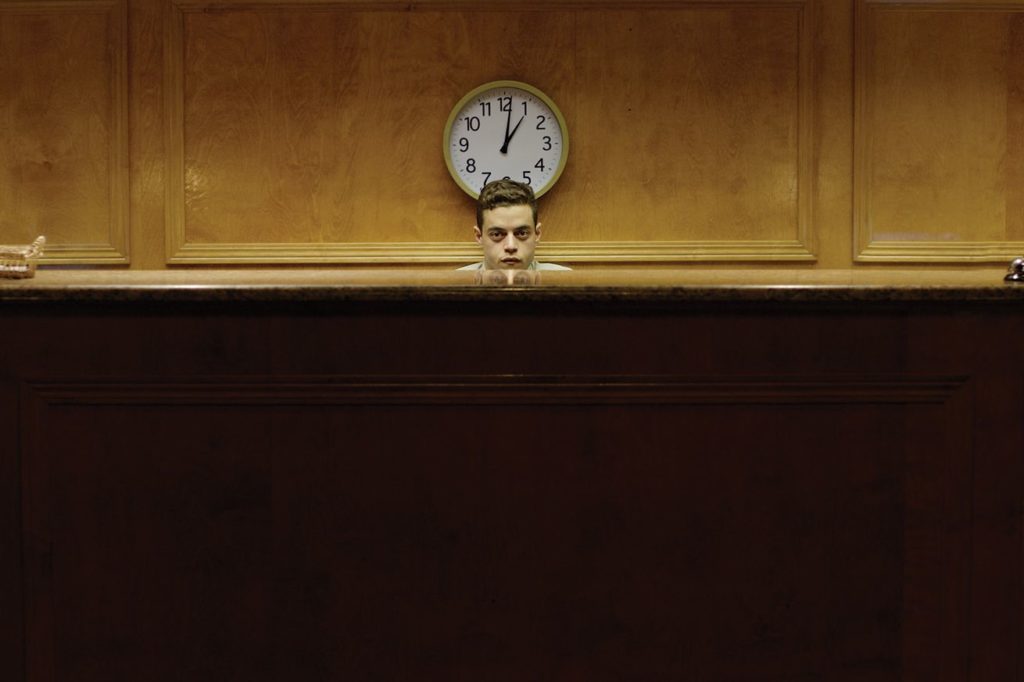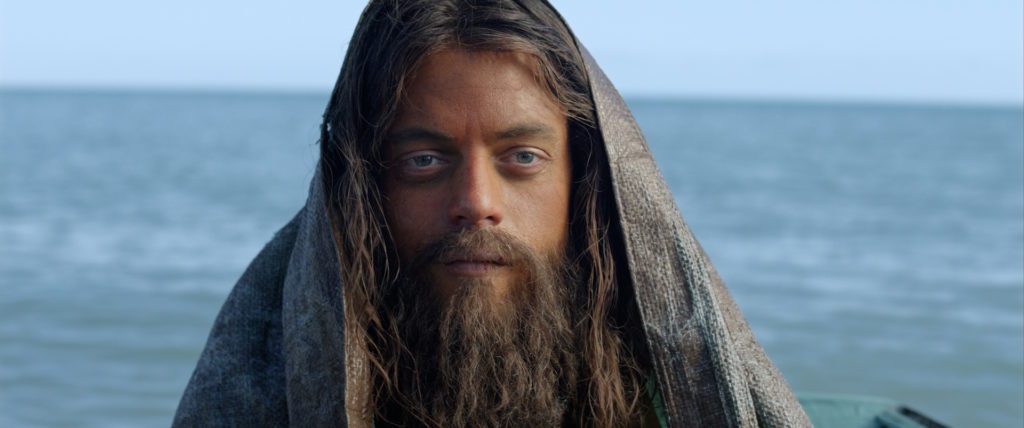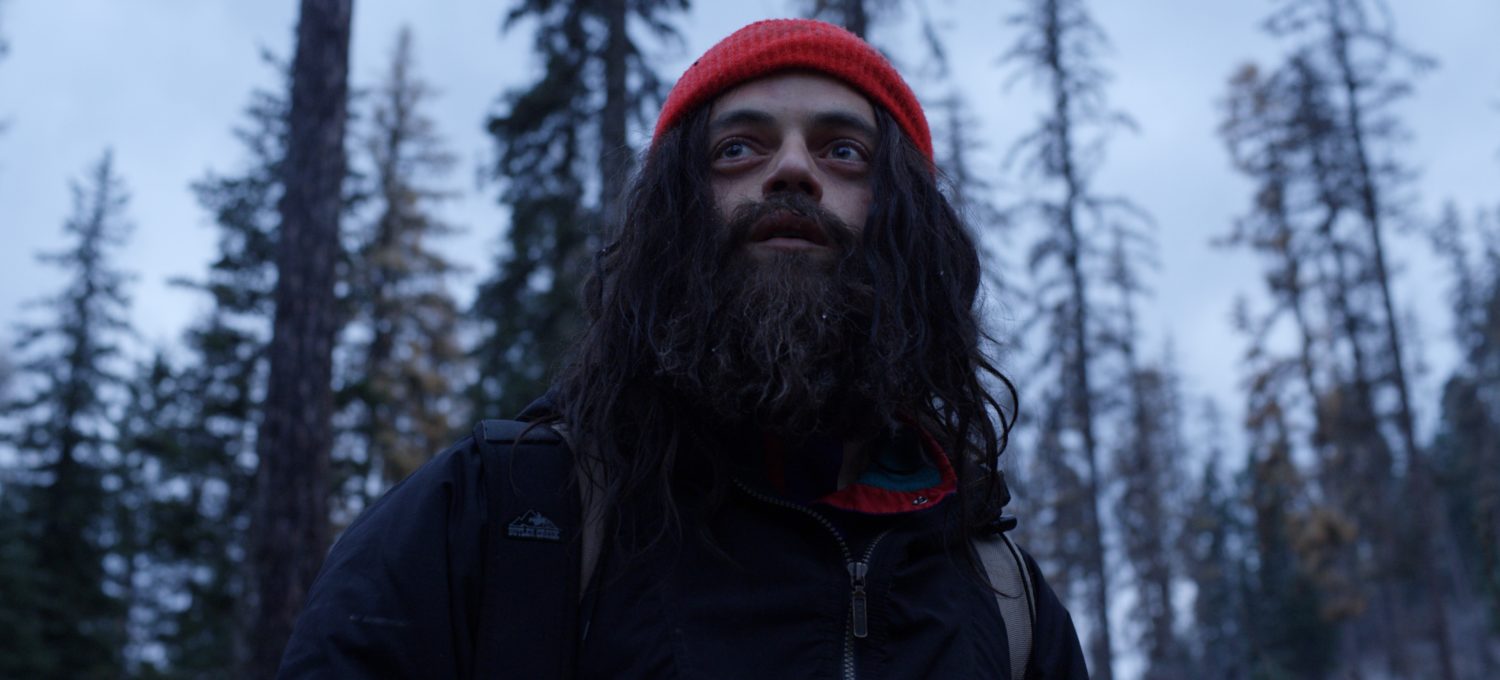We’re all guided by forces larger than ourselves. These are, more often than not, stories that we have been told and that we adapt for ourselves as life brings new challenges. Crises often emerge when competing forces vie for control of our attention. The central character in Buster’s Mal Heart eventually finds himself in just such a place, albeit an extreme one.
Before our lead character becomes Buster, he’s Jonah (Rami Malek), a mild-mannered hotel clerk who works the night shift. He and his wife Marty (Kate Lyn Sheil) and young daughter live with a couple from their church. She’s a former addict and he, apparently, a former bum. They’re saving to buy a piece of land where they hope to live and raise their daughter off the grid. While Jonah sleeps during the day, his wife, ever the more practical partner, goes apartment hunting. But the night shift is getting to Jonah, and he delves further into his off-the-grid mentality, and begins to have visions/thoughts of an impending apocalyptic event. Y2K is on the way, and a late-night guest at the hotel (DJ Qualls) stokes his paranoia. After a tragic event at work, Jonah flees to the wilderness, where he lives off the land in warmer months and breaks into vacant vacation homes to shelter from colder weather, hence the Buster moniker.

Written and directed by Sarah Adina Smith, the film casts numerous Biblical shadows from Buster’s real name to his wild-haired prophetic nature. There are a couple of references to God, but here, God is more of a great, unseen, threatening cosmic force, not the creator, sustainer, or redeemer of the Christian faith, even though Jonah takes on a Christ-like appearance in his hallucinations. The heart of the film is Malek’s schizophrenic performance, which mirrors his star-making turn in Mr. Robot.

Jonah’s wife is plagued by addiction, but she traded drugs for religion and the addiction remains. Jonah becomes addicted to his vision for an idyllic future, one that apparently is free of land taxes and medical bills. He becomes a fundamentalist of sorts, as he lashes out at his wife for looking at apartments and daring to envision a different future for them. This is a portend of things to come. His off-the-grid propositions are easily exploited by more radical notions of oppressive governments, conspiracy theories, and impending doomsday scenarios. In the end, Buster’s Mal Heart reminds us that our stories give us purpose but they also regulate what we’re willing and able to hear from others that might be following a different path.
Buster’s Mal Heart (96 mins.) is available on VOD platforms today.
